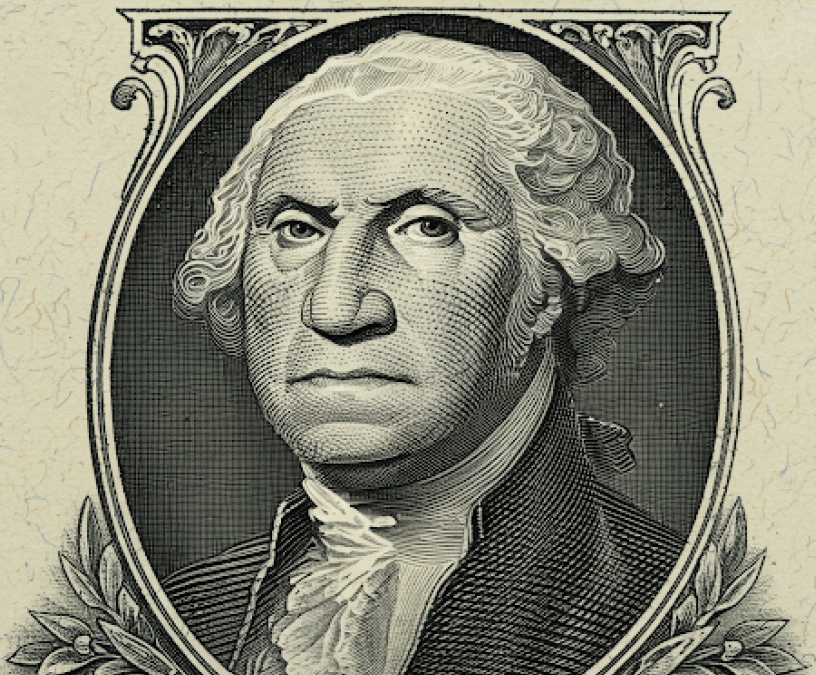It doesn’t seem like I handle cash very often these days, but when I do, I sometimes wonder what the austere faces on my money would say about my use of it.
“Sweets?” I imagine George Washington asking from his vantage point as I reach toward the candy-lined self-checkout shelf. His dour expression deepens. “That seems like a rather frivolous expenditure. Do you not think I would be put to better use funding a more substantive endeavor?”
He’s right. My budget doesn’t’ need another small dollar hit from a temporary indulgence. No wonder I mostly purchase with plastic these days. I just can’t take the judgement!
Despite my possibly overactive imagination, George Washington may have had more to say about my tracking of expenses than the expenses themselves. Washington was a meticulous expense tracker. This is well documented from his days as Commander in Chief of the Continental Army to his years at Mount Vernon
As Commander in Chief, Washington famously declined a salary. Instead, he asked only to be reimbursed for expenses. This seemingly virtuous act wasn’t without benefit. His detailed expense reports, have led some historians to joke that he received better compensation through expenses than salary.
Washington’s manual expense entries also provide humor that can’t be captured with today’s digital budgeting apps. For example, we find amusingly specific mundane details (such as the purchase of a ball of twine), along with laughable ambiguity (such as an entry marked simply “Dinner for one army”).
While there are no entries dedicated to grocery store candy, Madeira frequently makes the list. Bottles of wine, compliments of a newly formed nation at war, could certainly be classified as a somewhat frivolous “indulgence” couldn’t they? Perhaps fiscal inefficiency has been engrained in our nation’s history longer than we may think.
Regardless, what would an audit of our own expenses uncover? We’d probably all have a few similarly head scratching expenses. My point is not to lay guilt on a few indulgent expenditures: rather, it’s to highlight the importance of expense tracking. Tracking expenses certainly helps identify wasteful spending but also allows us to reprioritize resources toward bigger goals. We can’t identify what is a necessity or indulgence if we don’t even know where our money is going.
Handling money is no small responsibility. I was reminded of this recently while looking over a social security earnings record for a client. Have you considered that an individual earning an average of $50,000 annually will handle 2.25 million dollars over their working lifetime? We can all do the math. For those making more, this number just grows. Knowing what we’re doing with all this money is imperative to our stewardship of it.
Fortunately, tracking expenses is much easier these days. While perhaps providing less humor than Washington’s manual entries, numerous apps can automatically upload and even categorize our transactions for us. Clients of Evenkiehl have access to one of these budgeting features built into their client portal.
Do you know where your first million went? Do you know where your next million is going? If you want to prevent your next million from slipping away towards the equivalent of Madeira and candy, schedule a complimnetary introductory call and start planning today!


